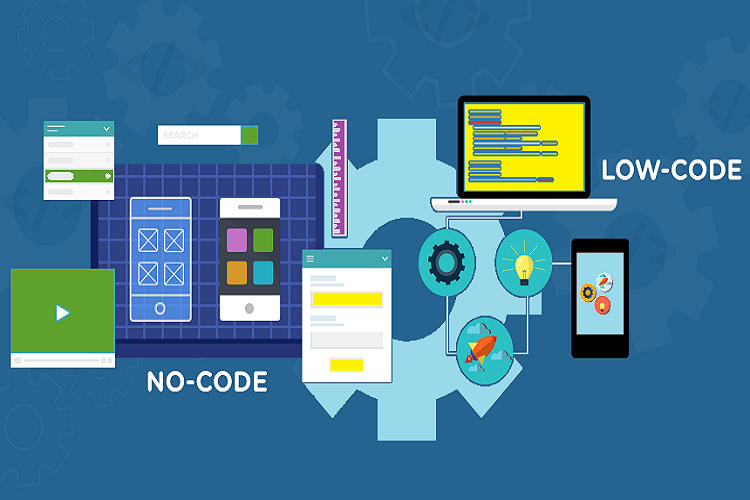Introduction:
In today’s fast-paced digital world, businesses of all sizes are constantly seeking ways to improve their operations and increase productivity. Traditional software development processes often involve a significant amount of time, resources, and technical expertise. However, a new paradigm has emerged that promises to revolutionize the way businesses handle data management and streamline their workflows: no-code databases. In this blog, we will explore the immense benefits of utilizing NoCode database solutions and how they can empower organizations to optimize their processes without the need for extensive coding knowledge.
Understanding No-Code Databases:
No-code databases are powerful tools that allow users to build and manage databases without writing a single line of code. These intuitive platforms provide a visual interface that enables users to define data structures, create relationships, and implement complex queries using a simple drag-and-drop approach. By eliminating the need for manual coding, no-code databases democratize access to data management, allowing individuals from various backgrounds and skill levels to participate in the process.
Rapid Development and Time Efficiency:
With no-code databases, the traditional software development cycle becomes significantly shorter and more efficient. Businesses can quickly prototype and iterate on their data models, saving valuable time in the development phase. No longer constrained by lengthy coding processes, organizations can respond to market demands swiftly and stay ahead of the competition. The ability to make changes on the fly without extensive coding knowledge enables teams to adapt their databases in real-time to accommodate evolving business needs.
Increased Collaboration and Productivity:
No-code databases foster collaboration by providing a platform that allows multiple team members to contribute and work together seamlessly. The visual nature of these tools facilitates communication and understanding across different departments, enabling stakeholders to collaborate effectively in database design, data entry, and data analysis. By eliminating the technical barriers, individuals from non-technical backgrounds can actively participate in data management, improving overall productivity and fostering a data-driven culture within the organization.
Empowering Citizen Developers:
Traditionally, software development has been the domain of professional coders and developers. No-code databases challenge this notion by empowering citizen developers—non-technical individuals—to create sophisticated database solutions without relying on external resources. This shift enables businesses to leverage the expertise and creativity of employees from various departments who have a deep understanding of their organization’s unique needs. Citizen developers can quickly build custom database applications tailored specifically to their requirements, eliminating the dependency on IT departments, and reducing the backlog of development requests.
Cost Savings and Scalability:
No-code databases offer a cost-effective solution for businesses of all sizes. By eliminating the need for dedicated development teams or costly outsourcing, organizations can allocate their resources more efficiently. Additionally, the scalability of no-code databases ensures that as the business grows, the database solution can seamlessly accommodate increasing data volumes and user demands. With the ability to scale on-demand, businesses can avoid significant infrastructure investments and only pay for the resources they utilize.
Integration and Automation Capabilities:
No-code database platforms often provide robust integration capabilities, allowing businesses to connect their databases with other essential tools and services. This integration empowers organizations to automate workflows, synchronize data across multiple systems, and streamline their processes. By eliminating manual data entry and repetitive tasks, businesses can optimize their operations, reduce errors, and improve overall efficiency.
Security and Compliance:
No-code database solutions prioritize data security and compliance. These platforms typically offer built-in security features such as encryption, access controls, and authentication mechanisms. Furthermore, by leveraging trusted cloud service providers, businesses can ensure their data is stored and managed in secure environments with regular backups and disaster recovery options. Compliance with industry standards and regulations becomes more manageable, as NoCode database providers often adhere to stringent security and privacy standards.
User-Friendly Interface and Accessibility:
No-code databases prioritize user experience by offering intuitive interfaces that are easy to navigate and understand. The drag-and-drop functionality, along with customizable templates and pre-built components, enables users to create databases quickly and effortlessly. With user-friendly interfaces, even individuals with minimal technical skills can become proficient in managing data effectively. Moreover, these platforms often provide extensive documentation, tutorials, and community support, ensuring users have the necessary resources to make the most of the no-code database tools.
Mobile Optimization and Remote Work:
In an increasingly mobile and remote work-oriented world, no-code databases excel in providing accessibility and flexibility. Many platforms offer mobile-optimized versions or companion apps that allow users to access and manage their databases on the go, using smartphones or tablets. This mobility enables remote teams to collaborate seamlessly, access real-time data, and make informed decisions regardless of their physical location. No-code databases empower organizations to embrace remote work trends while maintaining efficient data management and team coordination.
Streamlined Data Analysis and Insights:
Beyond data storage and management, no-code databases often provide built-in analytical capabilities or seamless integrations with popular data analysis tools. This integration allows businesses to derive actionable insights from their data without the need for complex coding or manual exports. By leveraging visualizations, charts, and reporting functionalities, users can unlock valuable insights and make data-driven decisions more efficiently. No-code databases become not only data repositories but also powerful tools for data analysis and business intelligence.
Rapid Prototyping and MVP Development:
For entrepreneurs and startups, time to market is crucial. No-code databases serve as invaluable tools for rapid prototyping and Minimum Viable Product (MVP) development. The visual interface and ease of use allow founders to quickly validate their ideas by creating functional prototypes without the need for extensive coding or hiring a dedicated development team. This accelerated prototyping process enables entrepreneurs to gather user feedback early on, make iterative improvements, and refine their product or service offerings effectively.
Continuous Innovation and Iteration:

No-code databases foster a culture of continuous innovation and iteration within organizations. The ability to quickly make changes and updates to the database structure encourages experimentation and encourages users to iterate on their ideas. Businesses can easily adapt their databases to evolving market trends, customer needs, or internal process improvements, thereby staying agile and responsive to change. No-code databases facilitate an environment that embraces innovation and supports iterative development, driving sustainable growth and competitive advantage.
Conclusion
No-code databases have emerged as a game-changing solution, empowering businesses to take control of their data management and streamline their workflows without extensive coding knowledge. The benefits are vast: rapid development, increased collaboration and productivity, cost savings, scalability, integration and automation capabilities, and robust security and compliance measures. By embracing no-code databases, organizations can unlock their true potential, foster innovation, and stay ahead in today’s data-driven world.
So, whether you are a small startup, an established enterprise, or a citizen developer with a brilliant idea, exploring the possibilities of no-code databases can be the catalyst for transforming your business operations and driving sustainable growth.


